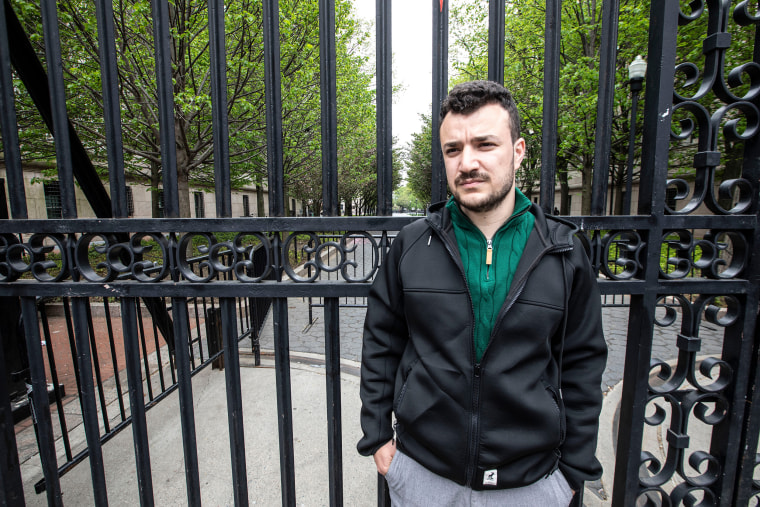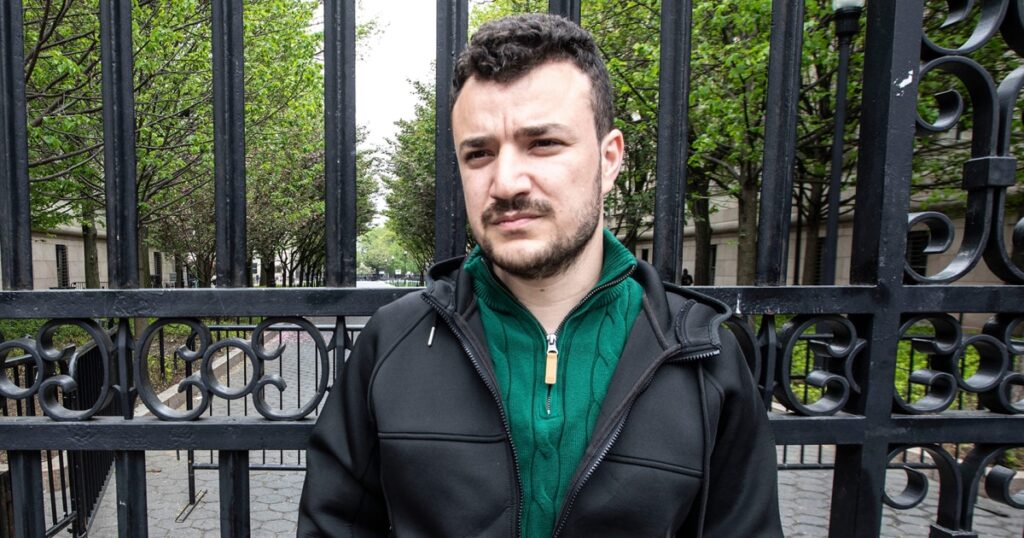A federal judge on Friday ordered the Trump administration to release pro-Palestinian activist and Columbia University graduate Mahmoud Khalil, ending more than three months of custody in an ongoing test of the executive branch’s power to unilaterally act against legal U.S. residents.
Khalil, whose plight has been center stage of Trump’s vow to crack down on opponents of Israel’s incursion into Gaza, has been in the custody of immigration agents since March 8.
“After more than three months we can finally breathe a sigh of relief and know that Mahmoud is on his way home to me and Deen, who never should have been separated from his father,” said Khalil’s wife Noor Abdalla.
“We know this ruling does not begin to address the injustices the Trump administration has brought upon our family, and so many others the government is trying to silence for speaking out against Israel’s ongoing genocide against Palestinians,” she said. “But today we are celebrating Mahmoud coming back to New York to be reunited with our little family, and the community that has supported us since the day he was unjustly taken for speaking out for Palestinian freedom.”
Homeland Security Assistant Secretary Tricia McLaughlin lashed out at “rogue” U.S. District Court Judge Michael Farbiarz and said he had no authority to order Khalil’s release.
“This is yet another example of how out of control members of the judicial branch are undermining national security,” McLaughlin said. “Their conduct not only denies the result of the 2024 election, it also does great harm to our constitutional system by undermining public confidence in the courts.”
Government attorney Dhruman Sampat had argued that Congress has given the executive branch sweeping powers to determine who could be removed from the county.
The courts should not have the authority to interfere, Sampat said.

“I don’t think any of that is right,” Judge Farbiarz said during the remote hearing.
The judge added that there’s “very strong and uncontested record” that Khalil is not a flight risk and poses no danger to the public.
“I’m going to exercise the discretion that I have to order the release of the petitioner in this case,” added Farbiarz, who is based in New Jersey.
Farbiarz declined a government request to put a seven-day stay on his order to give the government more time to possibly fight it.
But it wasn’t immediately clear in the minutes after Farbiarz’s ruling when Khalil could be set free, from his current hold at a detention center in Jena, Louisiana.
Magistrate Judge Michael Hammer said Khalil will have to “surrender his passport and any other travel documents” as a condition of his release.
Hammer also ordered Khalil to limit his travel to New York, where he lives; Michigan, where he has family; New Jersey, where Judge Farbiarz is based; Louisiana, the location of his immigration case; and Washington, D.C., for congressional visits and lobbying efforts.
Judge Farbiarz, though, made it clear Khalil needs to be released from custody on Friday and federal authorities said they believe he can walk free by 6:30 p.m. CDT.
Khalil has a green card, is married to a U.S. citizen and has no criminal record.
“No one should fear being jailed for speaking out in this country,” said Khalil’s attorney Alina Das, co-director of the Immigrant Rights Clinic at New York University School of Law. “We are overjoyed that Mr. Khalil will finally be reunited with his family while we continue to fight his case in court.”
McLaughlin, the DHS representative, said the government will continue to litigate this matter.
“It is a privilege to be granted a visa or green card to live and study in the United States of America,” she said. “The Trump Administration acted well within its statutory and constitutional authority to detain Khalil, as it does with any alien who advocates for violence, glorifies and supports terrorists, harasses Jews, and damages property.”
Secretary of State Marco Rubio has cited an obscure provision of the Immigration and Nationality Act of 1952 to justify Khalil’s removal, arguing he poses a national security risk.
The Cold War-era statute gives the secretary of state authority to “personally determine” whether Khalil should remain in the country, the administration has argued.
But Khalil’s backers have insisted that the government’s actions are meant to stifle free speech on college campuses and silence opponents of Israel’s ongoing military action in Gaza.
Israeli forces rolled into Gaza shortly after Hamas invaded the country on Oct. 7, 2023, in a terrorist attack that killed about 1,200 people. It’s been estimated that 251 hostages were taken by Hamas terrorists.
More than 55,000 people have been killed in Gaza since Israel launched its war against Hamas.

